‘We’ll all be exposed within weeks’: Omicron set for ‘short, sharp’ peak
Queenslanders are being warned ‘all of us are going to be exposed’ to Covid in the next few weeks with the peak in Omicron cases expected to hit by the end of the month.
Queensland’s Covid peak will likely be short and sharp and is likely to hit by the end of the month as the chief health officer warns ‘all of us are going to be exposed in the next few weeks’.
The Sunshine State recorded another 3,587 Covid cases on Sunday and 4,249 cases and one death on Monday as the state’s top doctor Dr John Gerrard warned of a potential surge as more Queenslanders come forward for testing.
Dr Gerrard said on Monday authorities needed more time to fully assess the science behind the new Omicron variant but the state should expect a ‘very large’ number of cases.
“Most of it is pretty good news, most of it,” he said.
“But the big problem is the sheer volume of people that are going to get the virus, that’s where the big problem will arise.
“All of us are going to be exposed in the next few weeks and even if you’ve had just the two doses of the vaccine, that probably isn’t enough to stop you from getting infected even if you have only mild symptoms.”
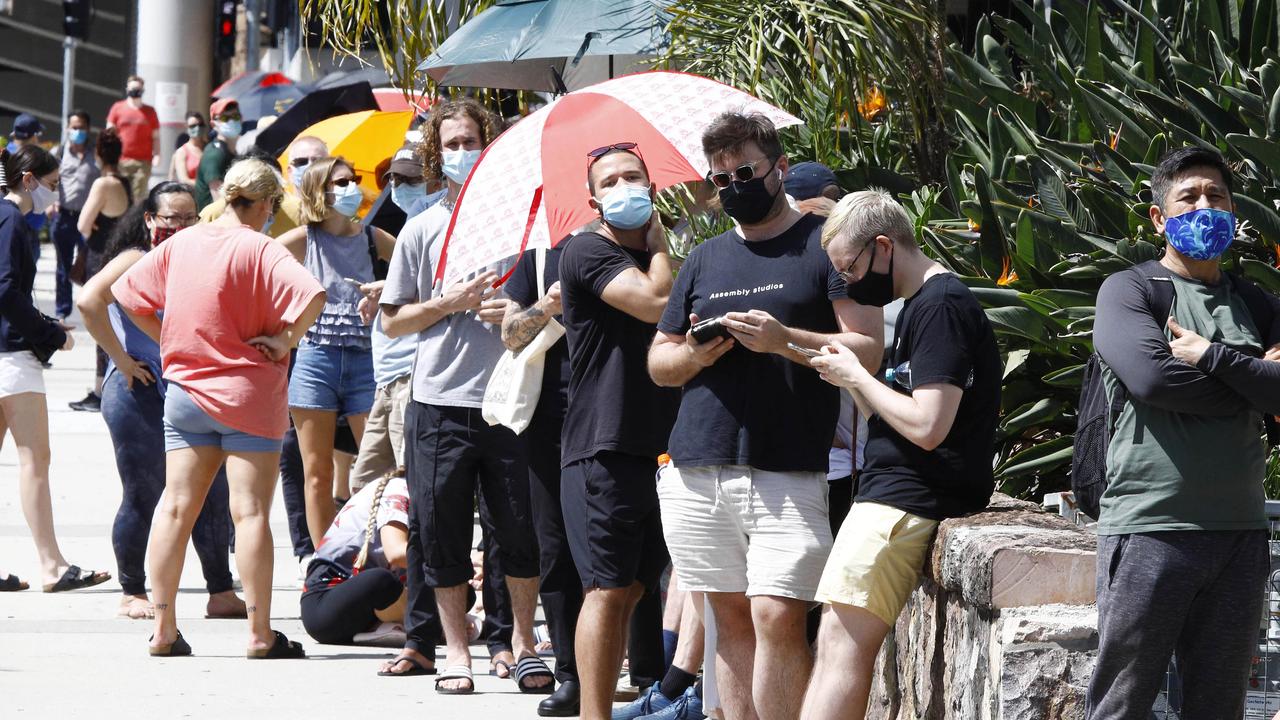
He said it was likely the current wave of Covid cases would hit a peak that would last weeks rather than months due to how contagious the virus was.
He said the burden on the state’s under-pressure hospital system would be eased if more people worked from home and masks were used indoors.
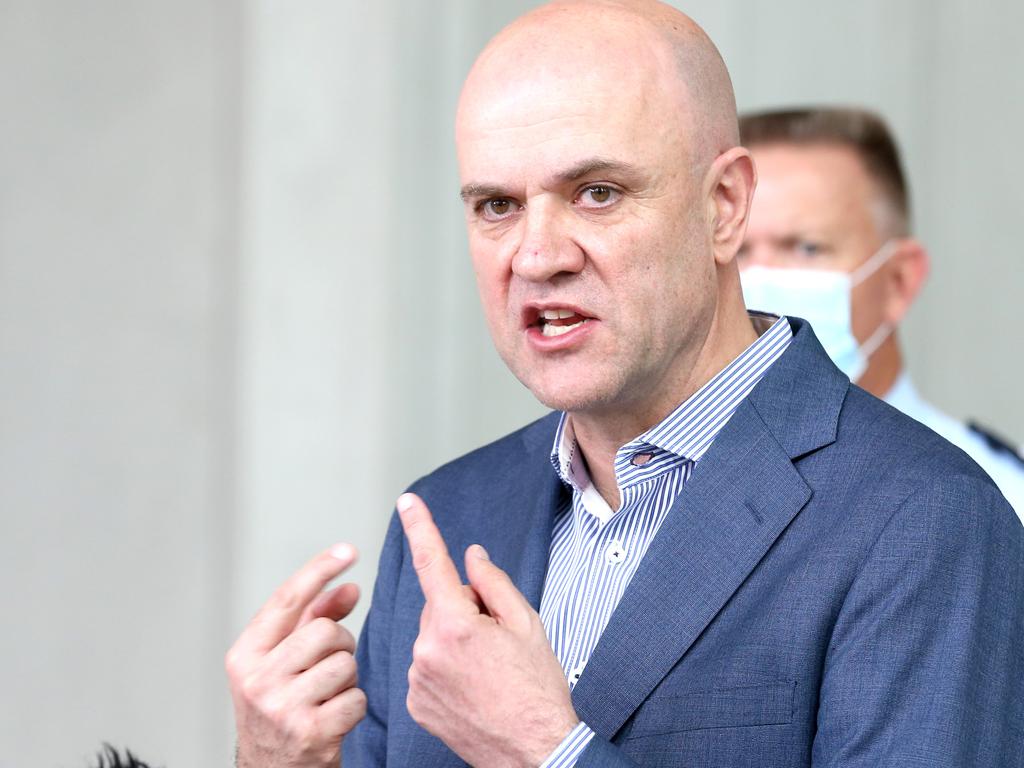
“Now we’re getting into the realm of speculation,” he said on Sunday in response to a question about the state government’s working from home advice.
“The one good thing about a very contagious virus is that the length of the wave is likely to be shorter in the order of weeks rather than months.
“Whether we then get another wave later on in the year – that’s what we don’t know.
“But it’s likely in the order of weeks that the peak of this wave will last rather than months given the high degree of transmissibility of the virus.”
Elective surgeries have also been cancelled amid hundreds of Covid cases within Queensland’s health workforce – with about 720 workers now in quarantine.
Professor Robert Booy, an infectious diseases expert from the University of Sydney, said he expected Queensland to hit its peak of Covid cases about late January – but it would likely come later than NSW’s peak.
“(Omicron) rises rapidly as it’s done all over the world and then it falls off rapidly,” Professor Booy said.
“Africa is falling off rapidly.
“I expect Australia … and Europe to peak this month and to be falling by the end of the month.”
Infectious diseases expert Dr Paul Griffin said he would not be surprised if Queensland experienced a peak in weeks to months.
He said mitigation strategies such as mask wearing, a focus on social distancing and rolling out boosters would likely push back the peak.
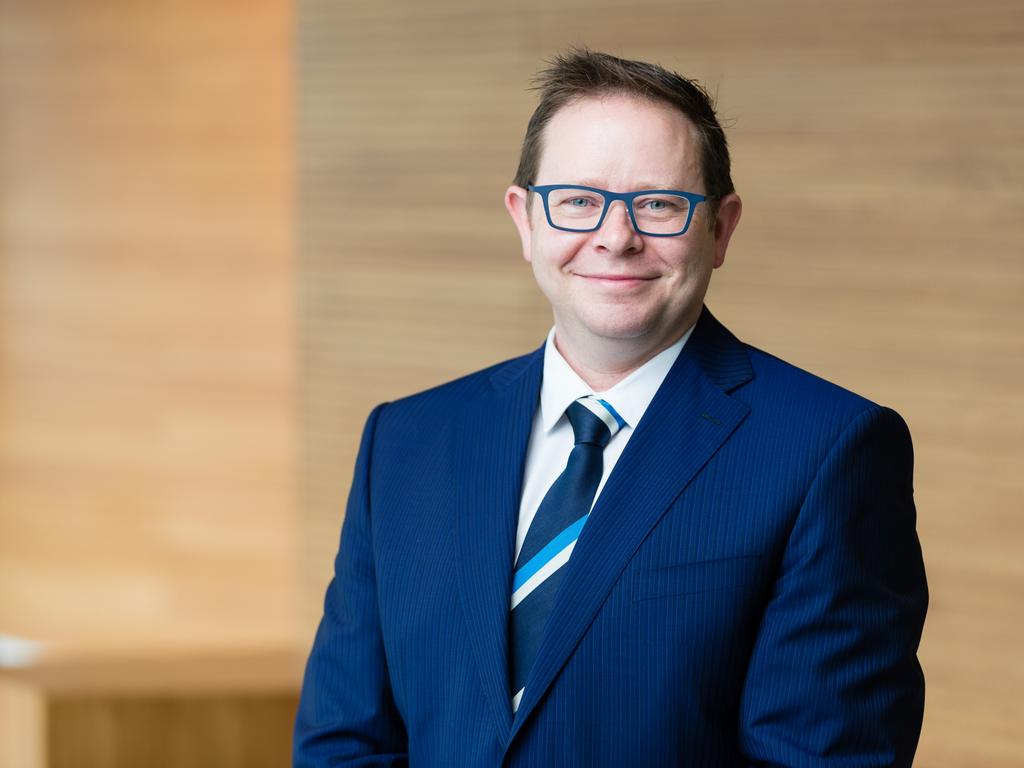
“So it (the peak) might be three months or so,” Dr Griffin said.
“There is more and more reassuring information both on the severity and what these other countries are starting to see with declines after a short, sharp wave.”
But Dr Griffin cautioned against complacency, suggesting efforts should still be made to prevent cases.
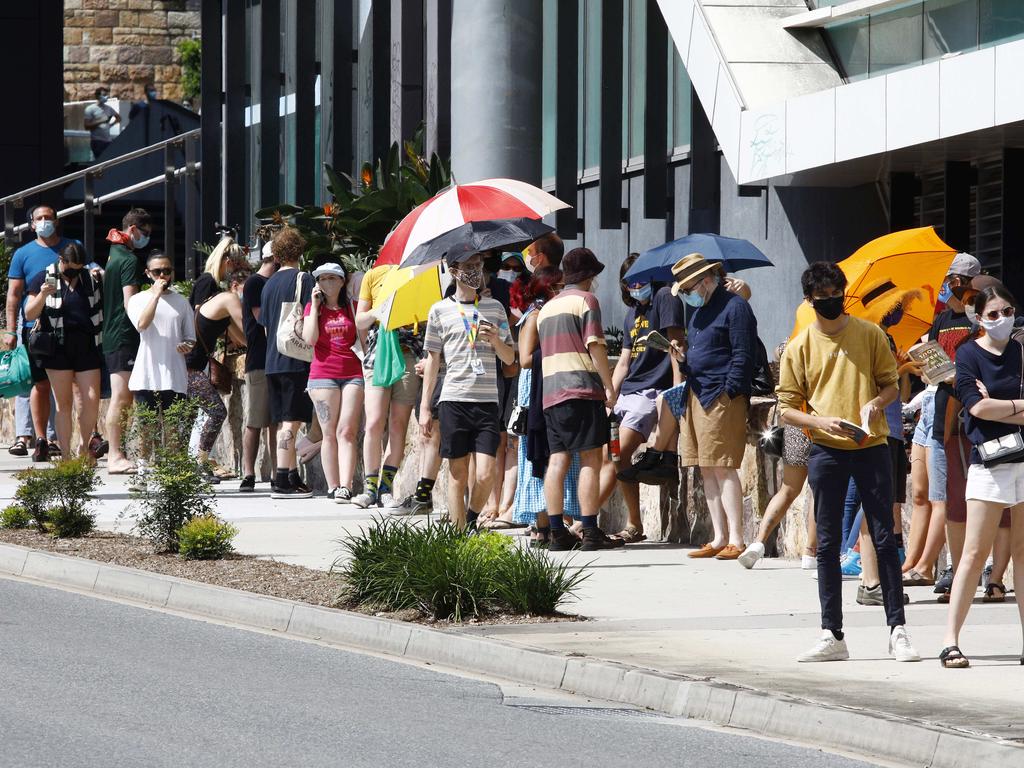
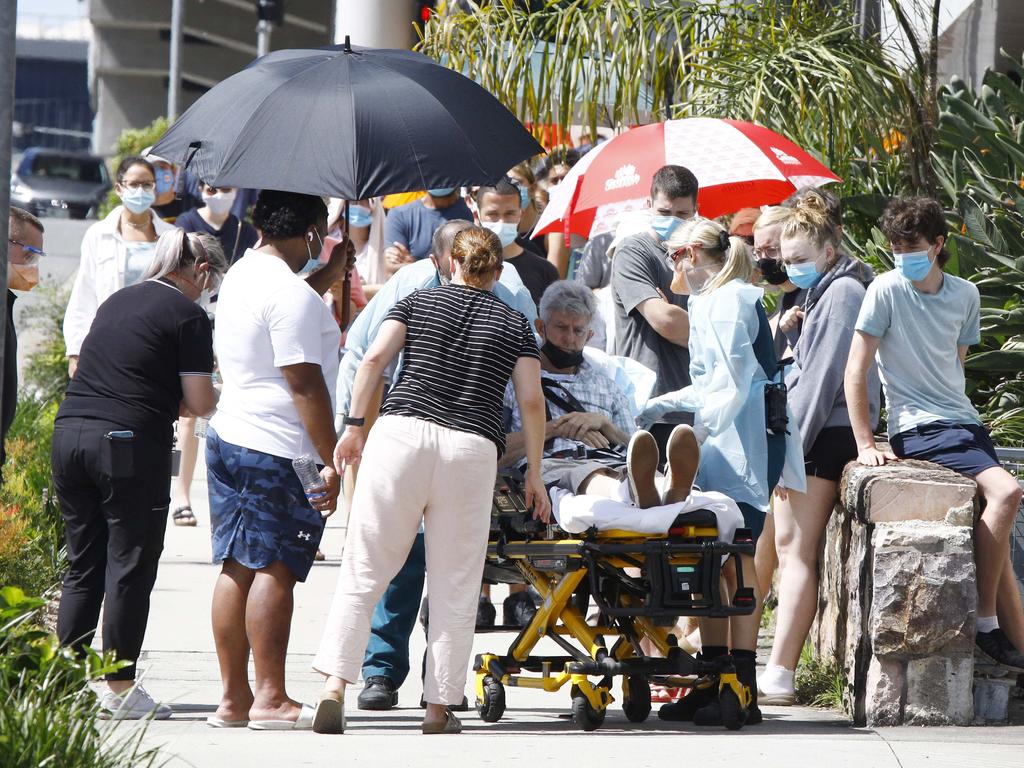
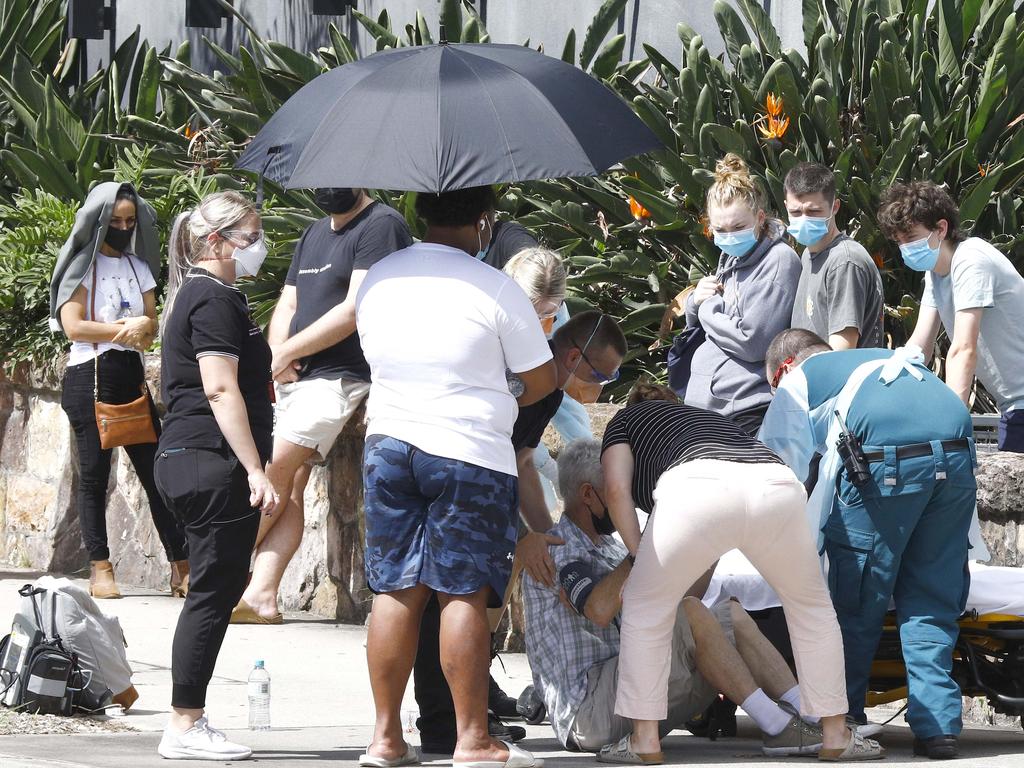
Meanwhile, Dr Gerrard warned there could be a significant increase in recorded case numbers in Queensland over the coming days as more people come forward to get tested.
As scores of people lined up in the sun awaiting testing at the Royal Brisbane and Women's Hospital, one person fainted and had to be treated by paramedics.
Dr Gerrard admitted the severity of the Omicron variant was drastically reduced thanks to the number of people being fully vaccinated, but he said the contagiousness of the virus meant Queensland would likely experience a large number of Covid cases.
“There are now five people being cared for in our intensive care units, but none of those patients are on ventilators,” he said.
“Clearly the disease we are seeing now is of a severity that is significantly less than was seen prior to vaccination … overseas and in Australia.”
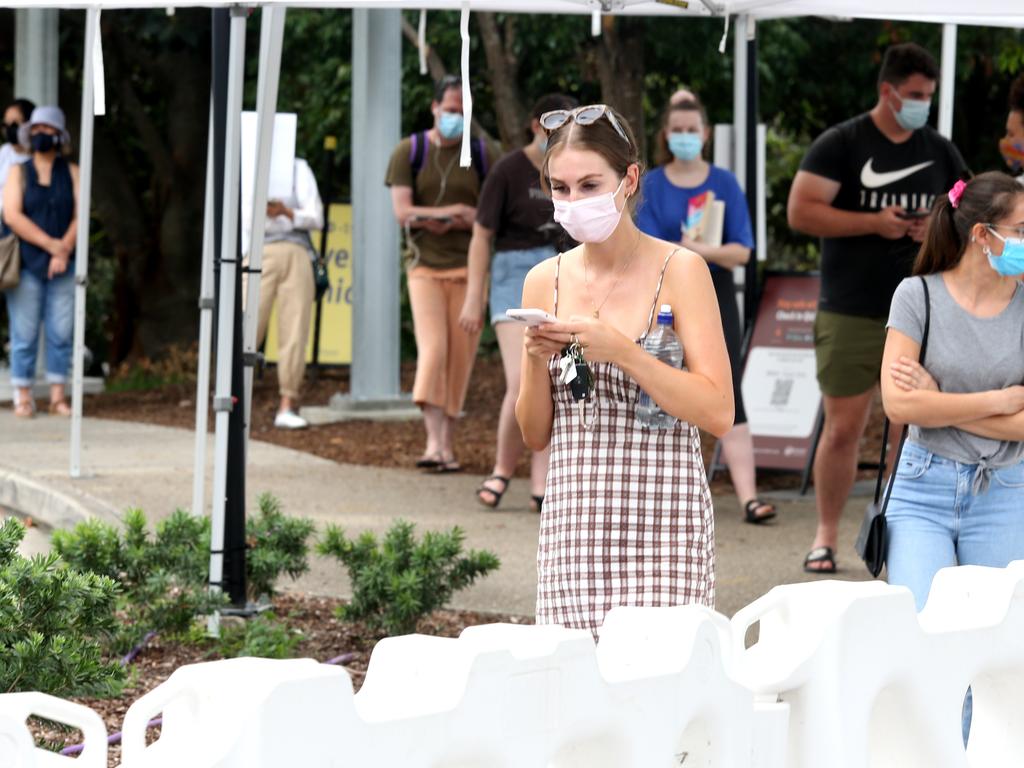
The chief health officer also confirmed about 330 hospital and health service employees had now contracted Covid, with roughly 720 workers in quarantine.
Dr Gerrard said he was aware of some elective surgeries in Brisbane being cancelled due to cases among staff, and also because of preparations for the expected increase in Covid cases.
“Mostly at this stage because of staff (Covid cases),” he said.
He revealed officials were currently looking at modelling regarding the number of cases that could be admitted to hospital with the virus.
As of Sunday, there were about 112 people being treated in hospital.
Dr Gerrard said he did not want to pre-empt the work of statisticians, but confirmed officials were assuming there would be substantial numbers in wards and intensive care.
“It’s a completely different pattern to what has been seen elsewhere,” he said of the virus in Queensland.
“We’ve got a new virus – Omicron – and we’re very dominant with Omicron here in Queensland, which has less severity.
“And we have a very highly vaccinated population. It is quite hard for our statisticians to give us accurate numbers.”
Dr Gerrard suggested officials were yet to predict when Queensland would hit its 90 per cent double dose vaccination rate.
“For us not to achieve 90 per cent second dose that would require tens of thousands of people who have received their first dose to decide not to receive it (the second dose),” he said.
Queensland’s single dose vaccination rate is now at 90.67 per cent.





